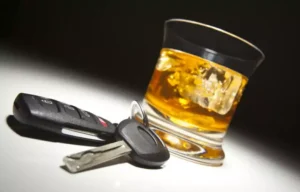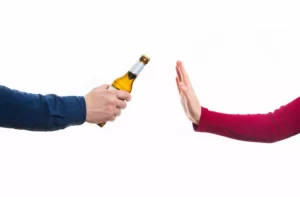By being aware of warning signs and taking appropriate action, individuals can safeguard their recovery journey. Individuals in long-term recovery need to be aware that physical relapse can occur, especially when the person isn’t actively thinking about using. The process of drug addiction relapse involves distinct stages, with the full relapse, or the return to active addiction, being a significant risk for those https://ecosoberhouse.com/ in recovery. Recognizing warning signs, such as depression and stress, is crucial to understanding the risk of relapse. When individuals continue to refer to their using days as “fun,” they continue to downplay the negative consequences of addiction. Expectancy theory has shown that when people expect to have fun, they usually do, and when they expect that something will not be fun, it usually isn’t [15].
Understanding Relapse in the Recovery Journey
There is no form of exercise superior to another when it comes to developing a healthy coping mechanism. Whether you like biking, dancing, hiking, yoga, Pilates, or anything in between, what matters most is the effort and consistency you put into it. We suggest participating in group workouts so you can begin forming positive social connections. It’s also important to construct your support network of people you know you can be honest with. These people can help keep you accountable, encourage your recovery, and share their experiences as well. Surrounding yourself with positive, honest people helps to minimize the triggers you may face and gives you the security that when triggers do occur, there’s someone you can turn to.
- Effectively addressing emotional triggers assists individuals maintaining sobriety and preventing relapse.
- • Unpleasant feelings including hunger, anger, loneliness, and fatigue.
- This includes recognizing key emotional, mental, and behavioral indicators, such as negative emotional responses, a change in attitude or behavior, and self-imposed isolation.
Support and Therapy for Cravings
Here are the top 10 common relapse triggers you might encounter during your recovery journey. Understanding these triggers can help you stay motivated and on track with your recovery goals, ultimately leading to a healthier, happier life. Exercise and physical activity can be incredibly beneficial in managing addiction triggers. Exercise releases endorphins that produce a natural “high,” which can provide an alternative to drugs or alcohol.
Mental Relapse
Avoidance is an excellent coping strategy if you know that you are likely to run into danger. But life is often unpredictable and it’s not always possible to avoid difficulty. Such feelings sabotage recovery in other ways as well—negative feelings are disquieting and are often what drive people to seek relief or escape in substances to begin with.
Signs and Symptoms of Physical Relapse
- It is crucial to identify such situations and consciously make the decision to avoid them.
- Addiction relapse triggers in drug and alcohol abuse recovery are quickly becoming a major concern for inpatient and outpatient treatment addicts.
- Some people arrange a tight network of friends to call on in an emergency, such as when they are experiencing cravings.
- Instead, it can be an opportunity to examine what lifestyle changes, coping skills, and adjustments may be needed to prevent relapse in the future.
This makes it harder to continue making the types of healthy choices you need to stay sober. Set yourself up for success by creating a relaxing nightly routine that promotes a restful slumber. High-risk places remind former drug users of the times they engaged in substance use.
There are multiple reminders of substance use in a former drug user’s life, including people, places and things. Asking the right questions and taking the correct steps can enable people in recovery to healthily transition to their normal life without risking a relapse. During therapy for people experiencing emotional relapse, patients are encouraged to identify their denial and focus on self-care. When people in recovery succumb to triggers, their brains create reasons to use substances despite knowing that they must remain abstinent.
Understanding Relapse: Why it Happens and How to Prevent It
- Everyone will have different internal triggers, but by recognizing some of the common ones you will be better equipped to avoid or address your internal triggers.
- For instance, if you’re an alcoholic and a group of drinking buddies ask you to go out, or you see people from work going to happy hour, it might help to have a specific response ready.
- Moreover, practicing mindfulness and relaxation techniques can reduce impulsivity and promote self-awareness.
- Encourage open and honest communication with your loved one, and provide a non-judgmental and supportive environment.
- Exercise and physical activity can be incredibly beneficial in managing addiction triggers.
- Emotions like anger, sadness, and loneliness can leave you vulnerable to relapse.
Recognizing these patterns is essential for individuals dealing with uncomfortable feelings during the recovery process. Taking action, asking for help, and addressing sleeping habits are critical steps to manage the third and final stage of the relapse process. In this blog post, we will explore some common relapse triggers and provide practical advice on how to overcome them. By breaking the cycle, you can maintain sobriety and continue to improve your quality of life. StressStress is something that everyone experiences, and it’s high up on the list of relapse triggers.
In fact, between 40% to 60% of people with a substance use disorder relapse at some point in their recovery journey. Alcohol is particularly difficult because so many people view drinking as normal, and it can crop up in unexpected places like office parties or even a neighborhood potluck. It’s important to make a list of people, places and things that are significant triggers for you so you can avoid putting yourself in a situation that may support relapse. Enlist the help of a friend, counselor or sponsor to get down the triggers you may not think of right off the bat. For many people, engaging socially and forming a support system in recovery can feel exhausting. Some people will try to avoid it altogether, which can lead to prolonged isolation and mounting loneliness.
In the early stages of substance abuse, using is mostly a positive experience for those who are emotionally and genetically predisposed. Later, when using turns into a negative experience, they often continue to expect it to be types of relapse triggers positive. It is common to hear addicts talk about chasing the early highs they had. On the other hand, individuals expect that not using drugs or alcohol will lead to the emotional pain or boredom that they tried to escape.


